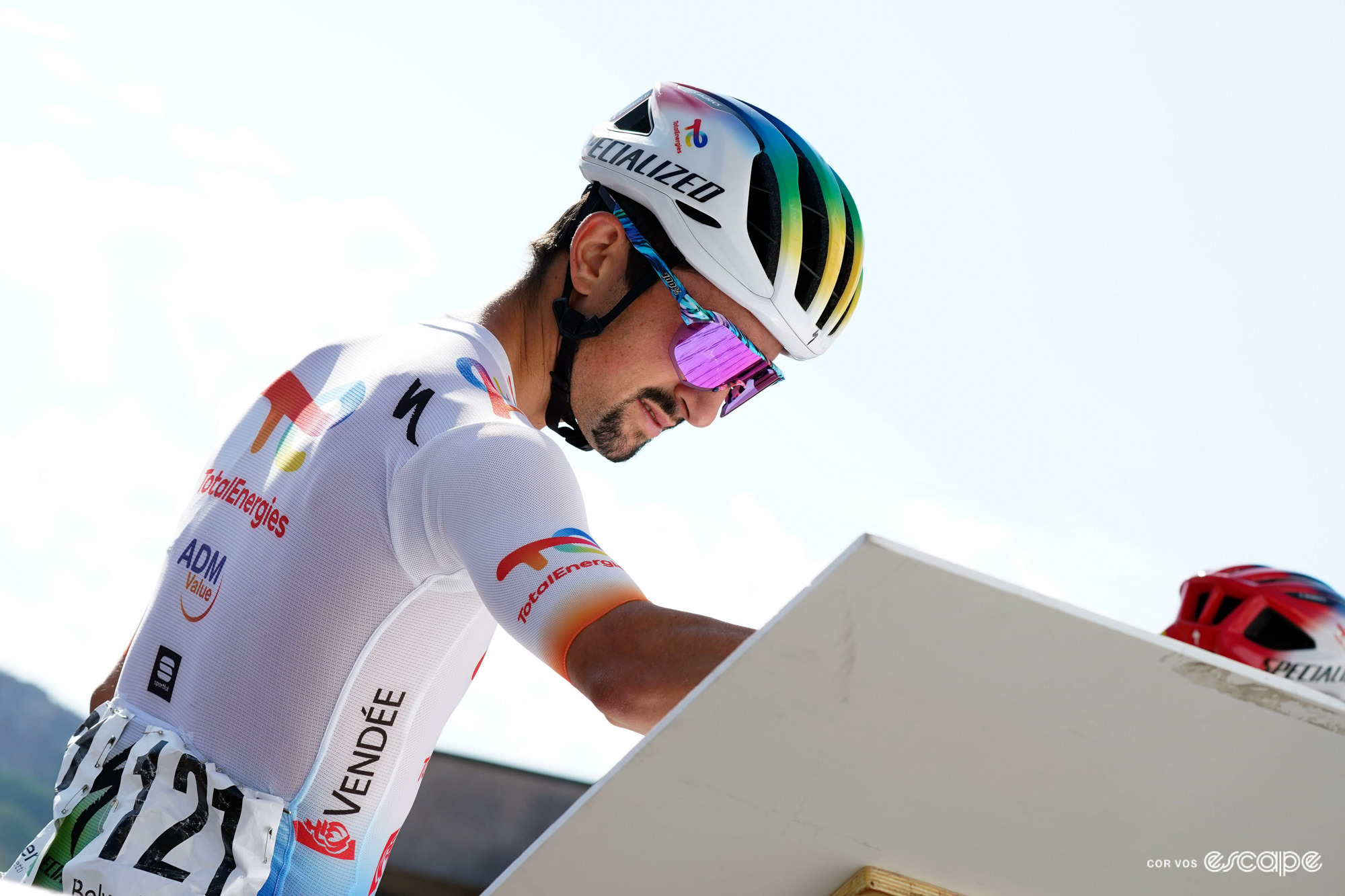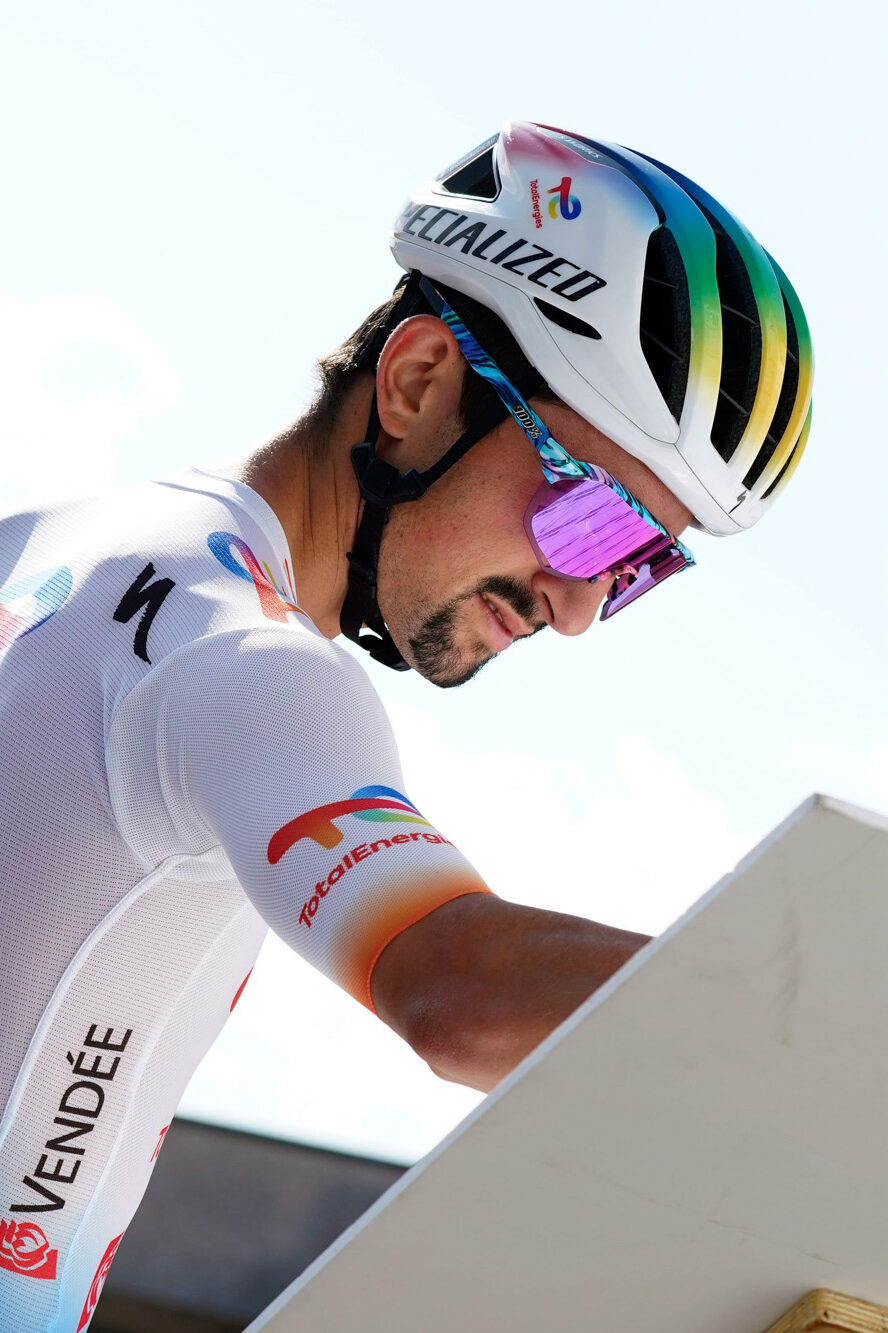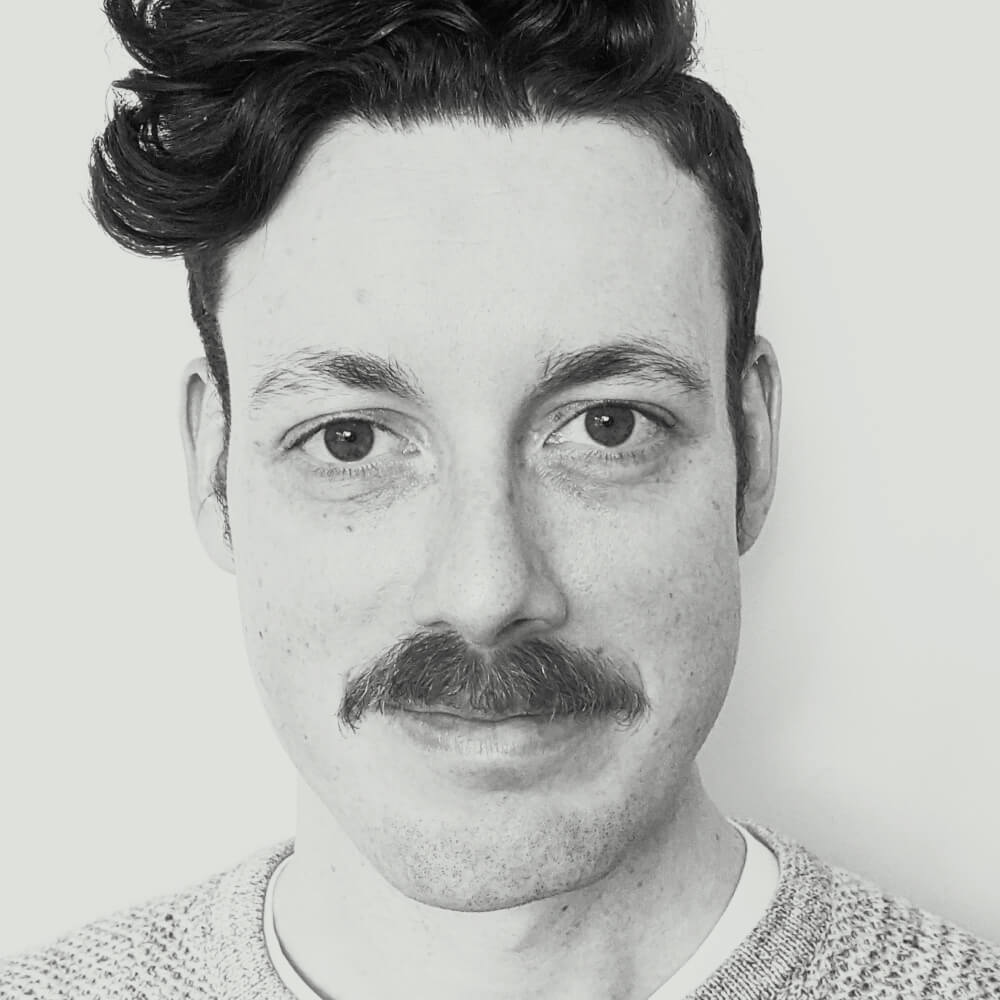One of the great gifts of the Tour de France – any bike race, probably, but let’s stay on task – is that in addition to all of the actual stories about the racing, there are little side-quests you can pursue. Sometimes these tell you something deeper about a rider and layer context upon a performance; sometimes you’re just trying to scratch an intellectual itch. In the case of the mystery of Mathieu Burgaudeau’s local potato, it became a weird little obsession.
Let’s step back a bit. Mathieu Burgaudeau – if you don’t know who that is – is a versatile rouleur riding for the French team TotalEnergies. Over the years he’s made a reputation for himself as a punchy breakaway rider, finishing second and third on stages at last year’s Tour de France. But he first came onto our radar several years before that – not for his riding, necessarily, but for the fact that he looks quite a lot like Julian Alaphilippe, all the way down to the goatee. At various points over that time, as Burgaudeau has improved as a rider, he’s remained a figure of some intrigue – impossibly French, strangely charismatic, always slightly out of reach. This year at the Tour de France, I wanted to see if the Burgaudeau in my head matched Burgaudeau in reality.
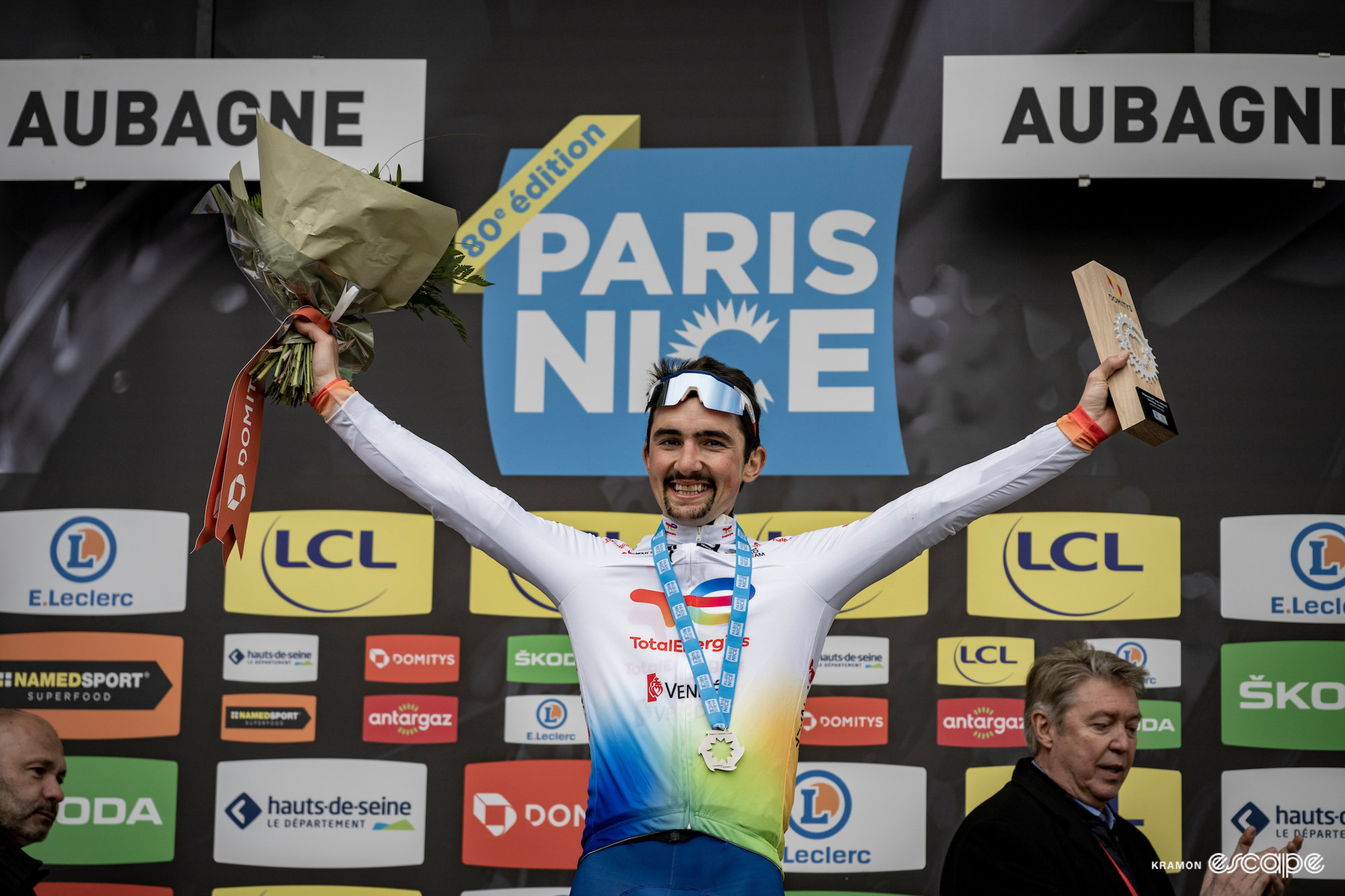
Burgaudeau was, I learnt, from the small island of Noirmoutier-en-l’Île, a sleepy little settlement off the western coast of France. There’s not much to it – just 4,000 or so inhabitants, some undetermined number of them Burgaudeaus, but with an intriguing key export: the ‘La Bonnotte’ potato. This apple of the earth is a favourite of fine-dining restaurants for the “earthy and salty” richness of its flavour, and is near extinct – just 100 tonnes of La Bonnotte is harvested a year, and it can only be harvested by hand, one week per year. As a consequence, it is the most expensive potato in the world, fetching as much as €500 per kilogram.
This discovery seemed as good a teeing-off point for a chat to Mathieu Burgaudeau as any. I had fantasies of a wide-ranging interview with the man that I’d spent years intrigued by – one that would touch on his favourite riders as he was developing, as a view to talking about Julian Alaphilippe and whether he chose his facial hair in homage to his hero. I would ask him about whether it was unsettling to be presented with a cardboard cut-out of himself every time he went into a TotalEnergies service station, and whether he was jittery about being arguably his team’s marquee rider since the retirement of stratospheric superstar Peter Sagan.
Those, in addition to a hefty dose of spud talk, were just some of the things I imagined I’d talk to Burgaudeau about. I didn’t yet know that he would be the most elusive interviewee in pro cycling.
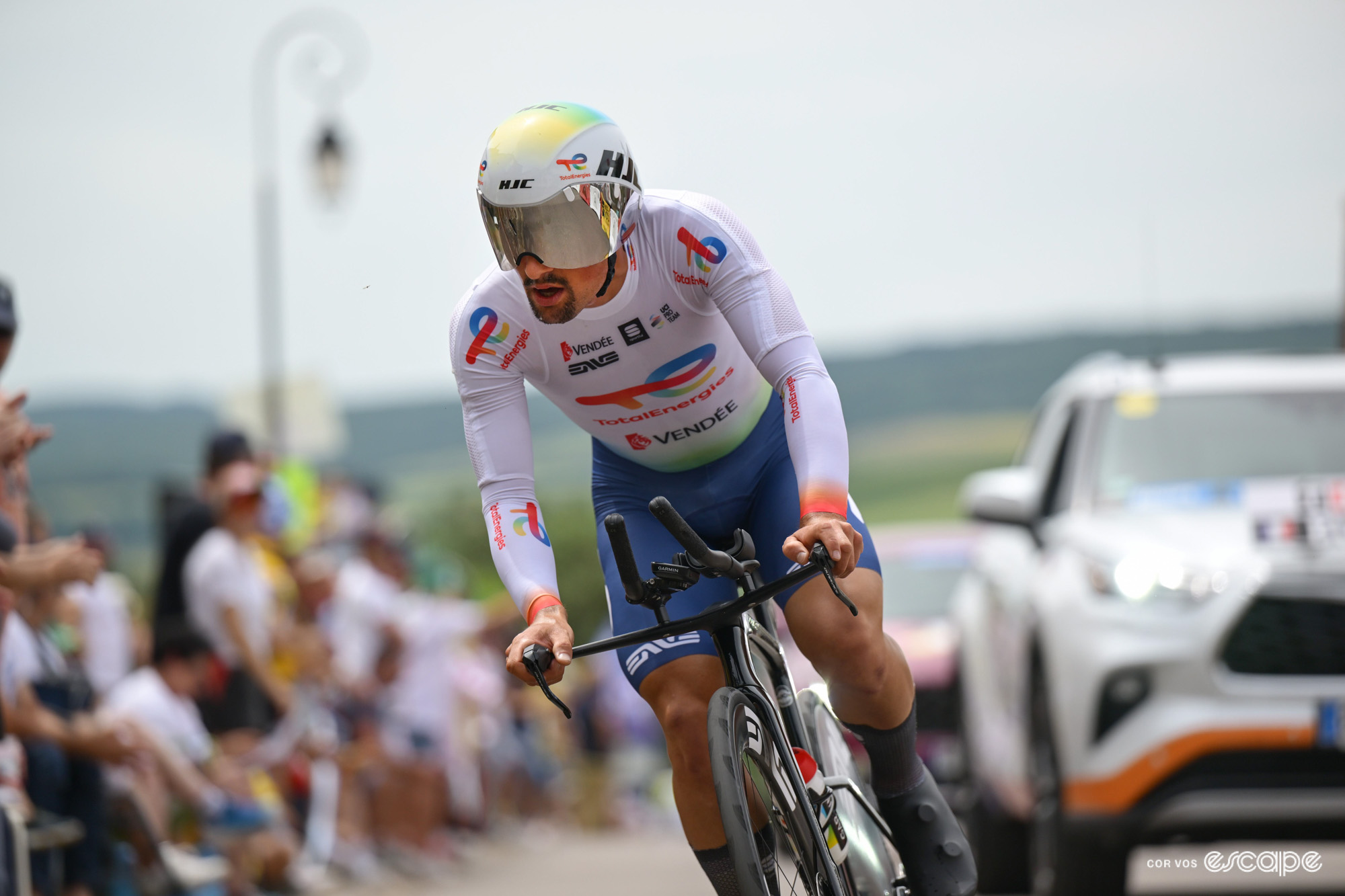
My four-day quest to ask a French cyclist about a potato began in Semur-en-Auxois, where – while waiting to talk to Alexander Kristoff about his birthday cake – I wandered up to TotalEnergies and waited for Burgaudeau to return from the sign-on. The overcast conditions turned to drizzle then rain. Then I saw him, riding quickly against the tide back to the bus. “Mathieu!,” I called to the man ignoring me a metre away. “Mathieu!”
With no acknowledgement, no eye contact, Burgaudeau parked his bike and practically ran into the bus. Not today.
The next morning: another visit to the TotalEnergies bus. This deeply French team seemed ill-inclined to share its secrets, but I had to try, asking around numerous staff members for someone that would speak to me. Most of the time, the issue lay in language barriers. This is, I should stress, a me problem, not a them problem. Eventually, success: a cameraman who could speak a little English, a bald bearded young man who could speak a little less, and an intro to a friendly press officer who was my best bet.
Burgadeau was, I was told “very focused on the day” [hands extended front and forward, as if to illustrate the concept of tunnel vision] and he was sceptical that Burgaudeau would talk to me about something so silly. We had a good laugh at the unconfirmed concept of Julian Alaphilippe joining the team and the tactical advantage it might give TotalEnergies to have doppelgangers in the line-up, and then I walked away, thwarted for another day but with a few more notches on my Friendship Tour belt.
That afternoon – oh, that afternoon! – was a great day for my new friends. Anthony Turgis won the gravel stage, and many many tears were spilled at the team bus. The elusive Burgaudeau rolled in a bit later, joining in the big hugs and backslapping that was happening all around me. The serious young man had a huge smile, but in the chaos of the team celebrations it felt inappropriate to pry. Let them have their moment.
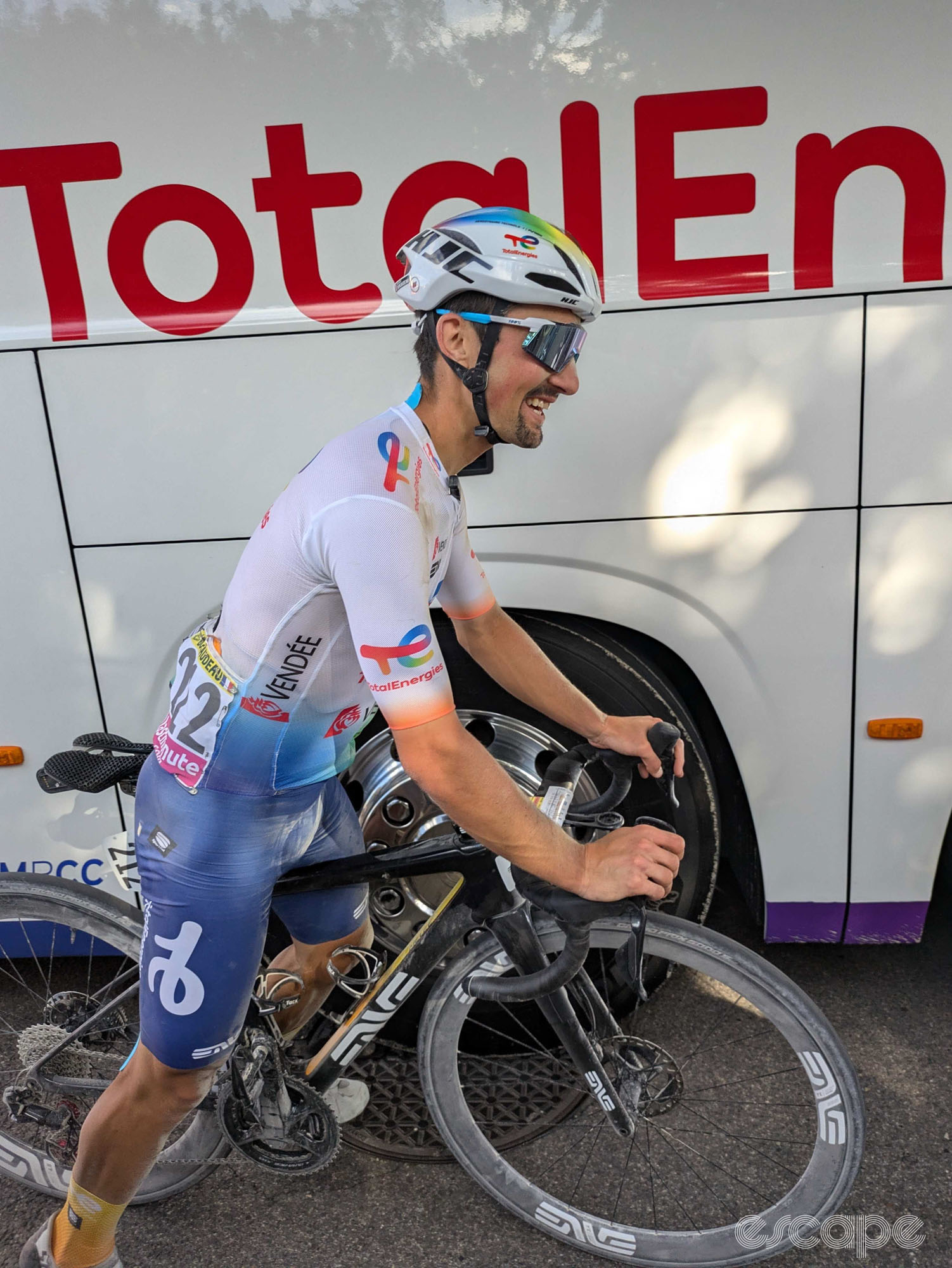
Day three on the Burgaudeau trail. Again, no luck. Not only was he in tunnel vision mode this particular morning, but he also, I learnt, didn’t like speaking to journalists at the best of times. Could they convey my query? They could, but it was time for a team meeting so today was not the day. Chastened, I skulked off to the Lidl Trek bus for a chat to World Potato Congress Ambassador Toms Skujiņš about Burgaudeau’s local variety. “€500?!” he said, shocked. “I’m not interested.” What do you look for in a good potato? “Uh, well, for one, it needs to be cheap, okay? Potatoes are all about being for the people, to the people, by the people. €500 a kilo is not that.”
By day four, I was becoming a familiar face at the TotalEnergies bus (See? if you don’t have any friends in the French teams, just pester them into it. It’ll pan out eventually). Friendly press officer man, Bastian, was making little jokes. The team photographer was somewhat prepared to maybe help with a little bit of translation (“If I’m here … maybe!”). They told Mathieu that I was back, and that I wanted to ask about the potato again. I waited. I waited some more. Jonny came across to help me with translation, too. A sense of looming dread, or excitement, or both, steadily built, and then I caught a glimpse of the elusive Burgaudeau through the wrapped windows. Finally, he emerged, stepping down and out of the bus, looking around for the source of repeated irritation.
Only that’s not really true – because it immediately became clear he wasn’t irritated or hostile to the media so much as he was extremely shy and extremely sweet.
Listening back to the recording of our interview is unpleasant listening, but that’s nothing to do with Burgaudeau. I fumbled an explanation of my limited ability as a French-speaker, tied myself up in knots and claimed to be able to speak a bit (false), and then switched over to English. “I am here about the potato,” I began. “Yes,” he agreed, having been briefed at length by his team staff about this over the past couple of days. “You have the world’s most expensive potato in Noirmoutier,” I continued. “Oui,” he agreed again. “€500 a kilo?” Burgaudeau’s brow furrowed as he dropped into French. “€500? No … maybe in America but we pay €80.”
Have you had the potato? “Oui.” Do you like the potato? “Oui.” How do you eat it? Boiled, mashed, roasted … raw …? Burgaudeau gives a deeply French blurt of the mouth. “All,” he laughs. “No, it’s better on the boil. With a lot of butter. And, voilà.” We are having a lovely time. He is smiling shyly, warming to the questions about his adored local potato. “It is the BEST,” he says in English, before dropping into French again to propose that they should throw them from the caravan.
Burgaudeau gives us a fist bump and a big smile before going back on the bus, and we walk off content with having maybe the only interview that he’s given with an English-language outlet this entire Tour de France. After years of being a kinda enigmatic figure and source of fascination for me, it’s been nice to get to know the man behind the myth – one that I largely constructed myself.
He’s not a stand-offish, off-brand Julian Alaphilippe after all. He’s a sweet, shy man from a tiny island who is really, really proud of his local potato, to the point that he’ll even speak to journalists about it.
What did you think of this story?
